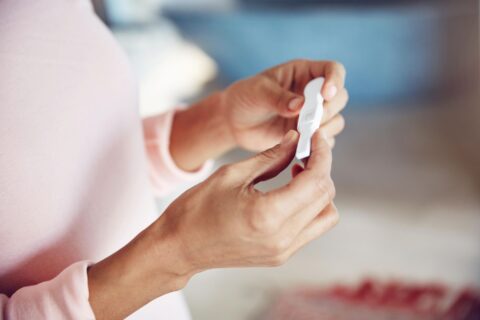It’s important to stay on top of your health by getting regular check ups but it’s hard to know where to begin. Use this quick year-by-year guide as your roadmap to health.
It’s hard work being a woman sometimes. We have menstruation, childbirth and menopause to deal with on top of all the things we need to do to get along in life. That usually means we take more trips to the doctor than men do, which – while it’s a hassle and an expense – also probably explains why women tend to have better health and live longer than men.
So it’s worth it to keep on top of all the health admin; it can truly be a life saver. What’s more, understanding our bodies empowers us to take charge of our health and often helps us feel more positive about the challenges thrown at us as we get older. Here’s a rough guide to the tests and numbers we, as women, should keep track of.
Every year
CHOLESTEROL
This blood test measures one of the important fats circulating in your bloodstream.
What to look for: When you have your cholesterol checked, you’ll be given a series of numbers: LDL, HDL, total cholesterol and the total cholesterol to HDL ratio. Your doctor will be looking for a low LDL number (less than 2), a high HDL number (1 or more) and a total cholesterol of below 4. The total:HDL ratio should be below 4, too, to be considered ideal.
What to do: If any of your numbers are out of whack, it’ll be looked at in the context of your whole health; high cholesterol is a risk factor for heart disease so your doctor will want to get it down. Clean up your eating and prioritise whole foods like vegetables, fruit, whole grains, lean protein and healthy fats – that means olive and vegetable oils, nuts, seeds and avocado, rather than animal and coconut fats. Clean up your carbs too; go for whole grains over refined carbohydrates and boost your lentils, chickpeas and beans.
What to google: Mediterranean diet – it’s gold standard for healthy plant-focused eating.
BLOOD SUGAR
This is a test of how much glucose you’ve got in your blood stream.
What to look for: Your blood sugar is checked via a test called HbA1c. It shows an average of your blood glucose levels over the previous three months. If your HbA1c is over 40, it’s a sign of prediabetes, and if it’s over 50, it shows type 2 diabetes. Both of these are serious and will need treatment.
What to do: A prediabetes diagnosis will likely mean some lifestyle changes are needed. It’ll start with food – check the cholesterol advice; the same goes here. Boosting your exercise – and working on getting your weight into the healthy range if you need to – can help stop prediabetes developing into full type 2 diabetes. If you’re diagnosed with diabetes, all of the same lifestyle steps will help, and you might also be prescribed medication to keep it under control.
What to google: Diabetes New Zealand has great resources for newly diagnosed people.
SKIN CHECK
Get your doctor or dermatologist to give your body a going over from top to toe, checking for any changing or troublesome moles or freckles.
BLOOD PRESSURE
This is basically a test of how well your heart is pumping blood around your body.
What to look for: Your blood pressure is expressed as two numbers: the systolic pressure followed by the diastolic pressure. An “ideal” blood pressure is 120/80. Your doctor will flag it with you if your blood pressure is between this and 140/90 or higher. At that level, it’s high blood pressure, or hypertension, and needs to be addressed, since it can cause a heart attack or stroke.
What to do: If you’ve been told you have high blood pressure, your doctor may offer medication to lower it. You’ll also be advised to get your weight down (if you’re overweight), cut salt and salty foods, and eat more fresh fruit and veges.
What to google: the DASH diet – it’s been shown to lower blood pressure.
DENTAL CHECK
It’s one of our least favourite checks but one of the most important; gum health in particular is connected to overall health in many ways, including the surprising link between gum disease, heart attack, stroke and heart disease.
Every 2 years
MAMMOGRAM
Once your over 45 you’ll start getting invitations for breast screening; make time for these appointments to detect any early signs of breast cancer.
CERVICAL SCREENING
Your medical practice, if they’re on to it, will keep nagging you to go for these appointments to check for signs of cervical cancer, so make sure you do.
Every 5 years
BOWEL SCREENING / COLONOSCOPY
Talk to your doctor about whether you’re a candidate for colonoscopy; if you have a family history of bowel cancer or have had any unusual changes in bowel habits, make sure you flag this. By the end of 2021, if you’re over 60 you should expect a letter to take part in the National Bowel Screening programme – take the time to send in your sample. It could be a life saver.
Ask your GP about
Check in with your doctor to see if you’re a candidate for these tests:
- Bone density
- Body composition
- Eye and ear tests








